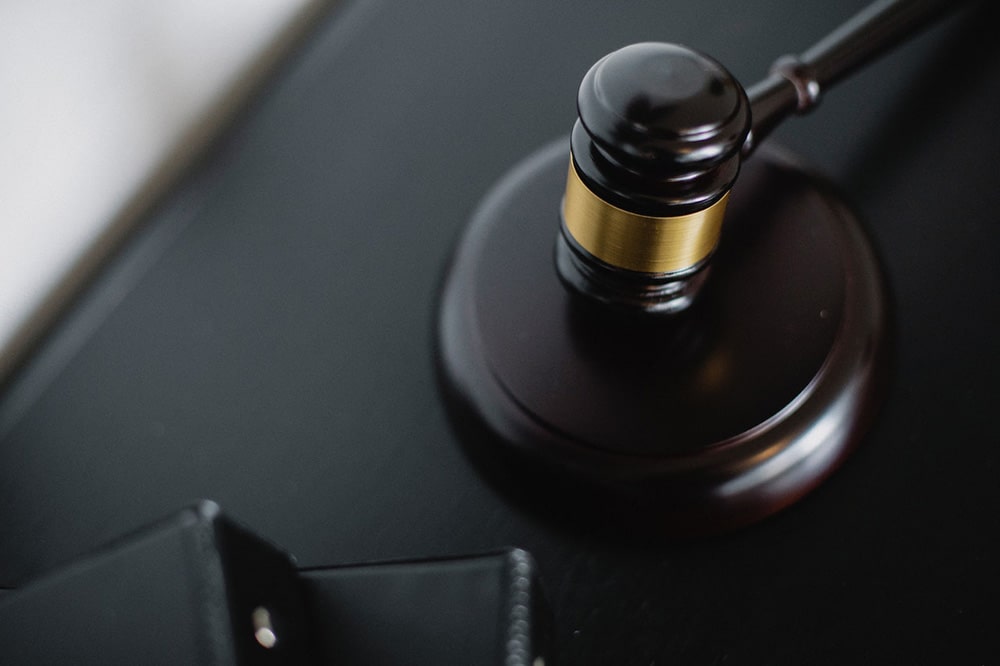
Most of us have been involved in car accidents. Most crashes involving two vehicles likely stemmed from someone else’s negligence, whether the manufacturing of a defective auto part, speeding, drunk driving, texting and driving, or some other type of reckless driving. Whether you have been hurt in a crash or you, unfortunately, caused one, you may have wondered if car accidents are civil or criminal matters.
While there’s no single answer to the question of whether car accidents are civil or criminal matters, there are some generalities that might explain when they are just one or both. Continue reading as our Williamsport car accident attorney details different scenarios in which a case may be one or the other type.
Understanding the Difference Between Civil and Criminal Liability
Put quite simply, Pennsylvania has criminal and civil court systems in each county. For example, there is a Court of Common Pleas and a Magisterial District Court in Lycoming County, both of which have criminal and civil divisions. The aim of these court systems differs.
The Criminal Law System
Prosecutors, known as district attorneys in our state, are responsible for deciding whether there’s enough evidence to file criminal charges against a defendant for a violation of city, county, or state law. Generally, the accused (defendant) can enter into a plea deal with the prosecution, admit guilt and proceed to sentencing, or plead not guilty and stand trial, where a judge or jury will decide their fate.
In the case of a car accident, the district attorney’s office may file charges against a defendant for their unlawful actions, whether or not they caused a crash or it injured anyone. The victim of said accident has very little, if any, pull when it comes to whether or not prosecutors ultimately file criminal charges against the person who caused the crash. It generally comes down to whether they believe there’s enough evidence to prove their case. The goal in pursuing criminal charges against them is to hold them criminally liable, or punish them, for their illegal conduct.
It is the responsibility of the prosecution and not the alleged victim to build a criminal case against a defendant, although they’re often asked to testify in court as to their account of events or to shed light on the adverse impact the perpetrator’s illicit actions had on their life.
Should a judge or jury find a person guilty on criminal charges, there’s a plea deal or an admission of guilt, and the defendant then faces sentencing. Generally, the punishment handed down in cases like these may include:
- Fines
- Community service
- Probation
- Jail time or prison
- The imposition of restitution
The latter involves the defendant repaying their victim(s) for actual damages they sustained.
The Civil Law System
Unlike criminal cases, the decision to pursue a civil lawsuit after a crash rests in the hands of the injured party. It’s their responsibility to determine if they can establish the elements to prove liability, which include:
- Proving the other motorist owed you a duty of care
- Demonstrating that the other driver breached the duty of care they owed you
- Showing that you suffered harm because they violated their duty of care
- Documenting how that harm equates to certain damages
While it’s commonplace for a person injured in an auto accident to file an insurance claim against the at-fault party, many of those cases are settled outside of court. Plaintiffs often file lawsuits in civil court when defendants appear unwilling to accept responsibility for a crash or reach a fair settlement.
The responsibility of compiling and presenting evidence needed to prove fault in a civil case rests on the plaintiff’s or victim’s shoulders. Like criminal cases, a judge or empaneled jury must weigh the evidence and determine whether the plaintiff was successful in proving the defendant’s liability in causing the crash and any resulting injuries or wrongful death.
Provided the court or jury rules in the plaintiff’s favor, the onus falls on their shoulders to determine what amounts to a fair “award” in the case. Generally, jury instructions emphasize that these damages awarded should aim to make the plaintiff whole again.
The awarding of economic and noneconomic damages is generally customary in civil cases that are successfully tried in court. However, a judge can additionally discretionarily order a defendant to pay punitive damages involving gross maliciousness if they’re found liable in their case.
How Car Accidents Can Be Both Civil and Criminal Matters
As you might have already surmised from reading about liability above, while it’s certainly more commonplace for individuals who are harmed or lose a loved one in a car accident to file a civil suit against the at-fault motorist, it’s also quite possible for the at-fault party to face both civil and criminal consequences for their role in causing it.
Take a drunk driving crash, for example, in which the victim was an unsuspecting, sober, and law-abiding motorist, and the motorist who caused the wreck was suspected of being intoxicated when the wreck occurred. The drunk driver crossed over the center line on a 2-lane highway in or around Williamsport, crashing head-on into another automobile, causing that person to suffer blunt force trauma that will have lifelong implications for the victim.
In the scenario above, it’s possible that the at-fault driver could be arrested on suspicion of drunk driving and, provided toxicology comes back confirming their intoxication, their criminal case may be adjudicated in the criminal court system. Potential outcomes in the case may include incarceration and other penalties, including the court ordering a convicted defendant to pay restitution to the victim.
At the same time, the occupant of the vehicle that the drunk driver struck may opt to file suit against that negligent motorist after unsuccessfully attempting to settle with their insurer. They may do this to ensure that crash-related expenses, such as the following, are properly compensated for:
- Property damage
- Outstanding and future medical bills
- Lost wages or anticipated earnings
- Funeral costs
- Noneconomic damages like pain and suffering or loss of enjoyment of life
The injured party may also sue a bar (or other party) who overserved the at-fault motorist, although it was evident that they were already past the point of intoxication, too, in accordance with Pennsylvania’s Dram Shop Laws, codified as Section 493(1) of the Pennsylvania Liquor Code. In this situation, you could file two separate civil suits and recover damages in each case.
So, as illustrated above, it is possible in some instances where a driver may plausibly be listed as a defendant in both a civil and criminal court case.
A Lawyer’s Role in a Car Accident Case
Considering how we’ve just shared that vehicle collision cases can become civil and criminal cases, you may wonder if you can handle the responsibilities associated with each of these on your own or if you need an attorney’s assistance to do so.
While you can certainly advocate for your own interests if asked to testify as part of a criminal matter against the person who struck you, or file suit and represent yourself unilaterally without a lawyer’s help, it’s not recommended. Establishing liability and building a strong civil case is an involved process, and an attorneys’ legal training comes in handy in these instances. Also, what you say when testifying in a criminal case, if tried before your civil one, can adversely impact the latter’s outcome.
Thus, it’s in your best interest to seek the guidance of a lawyer to help shepherd you through every step of the legal process. If you need assistance after a car accident and in criminal or civil cases associated with it, reach out for assistance from Stapp Law, LLC. We offer free consultations in our Williamsport office to injury victims wanting to discuss their prospective cases with an experienced legal representative.






